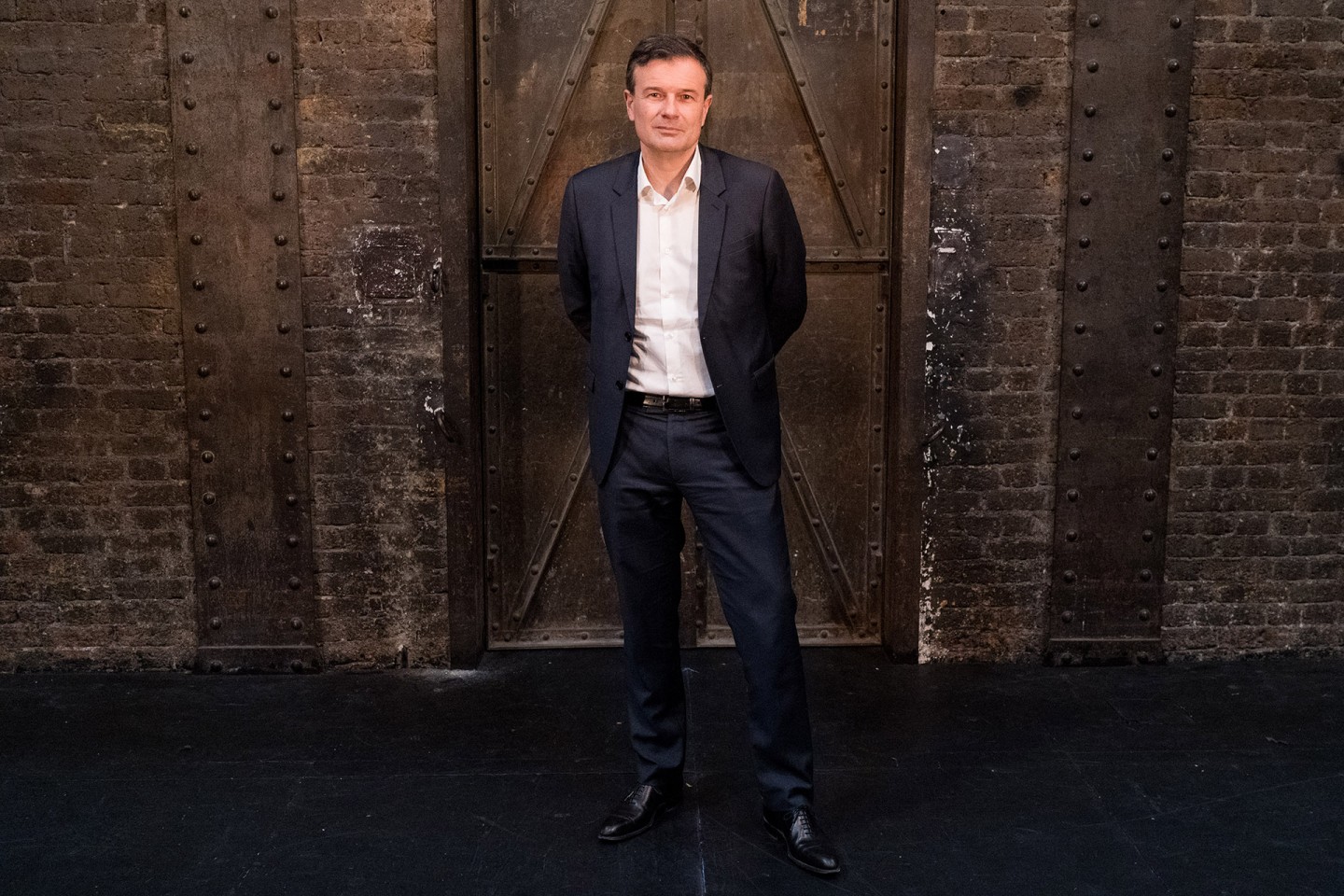Olivier Mantei was born in Nantes in 1965.
After studying Modern Literature and Musicology at the Sorbonne and the EHESS, Olivier Mantei teaches music for two years in Casablanca as part of the military cooperation.
On his return to Paris in 1993 he meets Laurence Equilbey who asks him to develop the chamber choir accentus she’s just founded. He becomes the director of the choir and together they professionalise its structure and make it a reference in the field. Olivier Mantei then opens a rehearsal and recording studio in Paris. In 1998 he founds his production agency Instant Pluriel with which he launches the musical season of the Bouffes du Nord and organises La Chambre Philharmonique, a symphony orchestra conducted by Emmanuel Krivine. He produces the first concert.
At the time, most associations of classical music lack the legal and accounting bases required by cultural companies. As a response, Instant Pluriel sets up a “permanent intermittent administration”, each company paying only the actual time of a performance. The concept is innovative and will go a long way. Moreover, Olivier Mantei also founds and presides over the FEVIS (Fédération des Ensembles Vocaux et Instrumentaux Spécialisés), the first organisation of employers of occasional entertainment workers in classical music. The main goal of this organisation is to defend the specificity of the structures and artists dedicated to ancient, vocal and contemporary repertoires. Today the FEVIS has become an acknowledged professional organisation gathering 118 ensembles throughout France and is now presided over by Jacques Toubon.
Besides being an administrator and producer, Olivier Mantei also becomes the artistic agent for Alain Panès, Sonia Wieder-Atherton, David Grimal, Marc Coppey and Vanessa Wagner, among others. From his time at the EHESS he keeps a passion for composers and a great rapport with Pascal Dusapin, Alexandre Desplat, Philippe Manoury and Franck Krawczyk.
During his ten years as an independent producer, he devises a number of schemes with the director of the Cité de la Musique, Laurent Bayle, such as the Biennale d’Art Vocal and concerts dedicated to the Marlboro American Festival.
In 2000, at the initiative of Stéphane Lissner, joint manager at the Bouffes du Nord theater, Olivier Mantei meets Peter Brook who offers him to run the theater and its company. Olivier leaves the Bouffes in 2006 but returns in 2010 together with Olivier Poubelle with the ambition of promoting music theater and producing young talented stage directors such as Jeanne Candel, Samuel Achache, Guillaume Vincent, Jean-Christophe Meurisse and his Chiens de Navarre.
His initial reason for leaving the Bouffes du Nord in 2006 is due to Jérôme Deschamps’ friendly invitation to participate in a contest for the direction of the Opéra Comique. 2005 marks the beginning of Olivier’s adventure with the Rue Favart theatre. At that time, Olivier works at the Bouffes during the day and fills out Jérôme Deschamps’s application file at night and at the weekends. But what does the future hold for the salle Favart? Several people, including Maryvonne de Saint Pulgent, have called for the resumption of the institution’s initial mission: maintain the nearly tercentenary genre, host Baroque works and draw from the huge repertoire of the Opéra Comique. While the company seeks inspiration, the two partners suggest renewing its identity by focusing on the repertoire and creation while renovating the theater so as to offer musicians and singers the best conditions. Jérôme Deschamps is appointed director in 2007 with Olivier Mantei as his deputy.
The scheme includes conductors William Christie, John Eliot Gardiner, Louis Langrée and Alain Altinoglu, who participate in several productions through the years. Composers Pascal Dusapin, Georges Aperghis, Marco Stroppa, Péter Eötvös, George Benjamin write for the Opéra Comique. The audience answers the call all along Deschamps’ eight-year era.
In 2014, on Pierre Lescure’s request, Olivier Mantei participates in the planning of the auditorium of the future Cité Musicale on Ile Seguin. New competition: new challenges. Together with Bouygues, TF1 and Sodexo, the former director of Canal+ and the then deputy director of the Opéra Comique consider the artistic scheme for the future auditorium, West of Paris. In the entertainment industry, the deal offered by the Conseil Général des Hauts-de-Seine constitutes the first public-private partnership (PPP), which certainly spices up the competition.This experience gives Olivier Mantei new ideas on how to combine the demands of public service and trade reasoning. His book Public/Privé – in which he deals with all these experiences in order to draw lessons for the future – is published in 2014 by Archambaud.
From April 2014 to 27th June 2015 he is appointed managing director of the Opéra Comique by the Minister of Culture and Communication Aurélie Filippetti. On 24th June 2015, on proposal from Fleur Pellerin, Culture and Communication Minister, Olivier Mantei is appointed director of the Théâtre National de l’Opéra Comique by the President of France. The communiqué from the Culture Ministry states: “Particularly committed to renewing forms, Olivier Mantei will ensure that opera closely associates today’s stage directors and creators in order to make it an art form of the present.”
In June 2020, Olivier Mantei is reappointed as director of the Théâtre National de l’Opéra Comique for three years. He no longer works at the Bouffe du Nord nor at the Athénée, of which he's still a shareholder.
From 2014 to March 2021, Olivier presides, pro bono, the association Heures Musicales de Lessay. Olivier Mantei is Knight of the French Legion of Honor, Knight of the National Order of Merit and Officier des Arts et Lettres.
Crédit : Olivier Mantei © Edouard Brane






